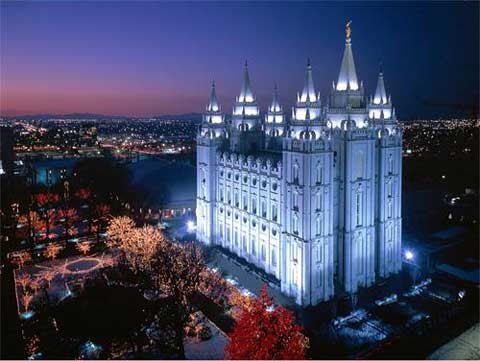
SALT LAKE CITY -- The Vatican's recent ban on Mormon microfilming and digitizing of Catholic parish records out of concern they will be used for the LDS practice of baptizing the dead may have a wide-ranging and chilling effect on the whole family history enterprise, some professional genealogists say.
"It's going to close off a great many countries and even Catholic dioceses in America whose records haven't been microfilmed," said Jim Petty, past president of Utah's chapter of the Association of Professional Genealogists. "This makes it difficult for genealogists of any religion."
A letter from the Vatican called LDS baptisms for the dead a "detrimental practice" and directed each Catholic diocesan bishop "not to cooperate with the erroneous practices of The Church of Jesus Christ of Latter-day Saints."
"The problem is not about making historical records available for research," said Monsignor Terrence Fitzgerald of the Catholic Diocese of Salt Lake City. "The problem is with baptism for the dead. I wouldn't want my mom and dad who were lifelong Catholics to be baptized LDS."
The Salt Lake diocese has not allowed the LDS Church to copy its records for years, Fitzgerald said. "Here we are very much aware of the baptism issue."
The LDS Church began seeking ancestral records in the 19th century as a way to baptize posthumously, by proxy, all who have died without an LDS baptism. Mormons believe it gives their deceased relatives an opportunity to accept the faith in an afterlife. These rituals are performed in LDS temples worldwide.
To this end, the church has microfilmed millions of birth, death, christening, marriage and other related information of deceased people, from archives and registers of churches and denominations, when access is permitted.

But Kathy Kirkpatrick, another past president of Utah's professional genealogist association, said the irony is that the prohibition will be felt most by Catholics who want to pursue their family history back beyond civil records.
"Most parishes can't or don't answer letters because they are understaffed and their highest priority is the living (as it should be)," Kirkpatrick said in an e-mail.
The LDS Church declined to comment on the situation, said spokesman Rob Howell, saying it was an "internal letter sent only within the Catholic Church."
1 comment:
It is a bit silly to oppose these baptisms.
If the system of baptism is false, as the Catholic Church contends, then it will have no effect on the Catholic Dead (or the dead of any other denomination).
If it is true, and those beyond the grave accept the ordinance and convert, than it will, and who wishes to stand in the way of that?
And really, it is as simple as that, and so, Baptisms performed in LDS Temples (by the way, for THEIR ancestors ... not simply Catholic property ... and that is of concern) shouldn't worry a soul one way or the other. Either it is true or it isn't, and so will either bless or do nothing to the departed.
What is of concern, likewise, the Catholic Church apparently is clueless regarding who is really doing all this genealogical research. Statistical studies show the LDS only doing a very small fraction of this family research. That they open up the doors of their genealogical libraries to the people of the world is a compliment to their open-mindedness and service oriented attitudes. These fine facilities cost millions and millions of dollars and are manned by hundreds of thousands of volunteers worldwide.
This move by the Pope sadly does not reflect well on a Church that contends that it is in the service of all of mankind.
The Pope ought to reconsider. I'm guessing Catholics, in raw numbers, do as much or more genealogy than the LDS. A research that helps create ties of love to those who went before us ... a very Christian thing, I think.
Post a Comment